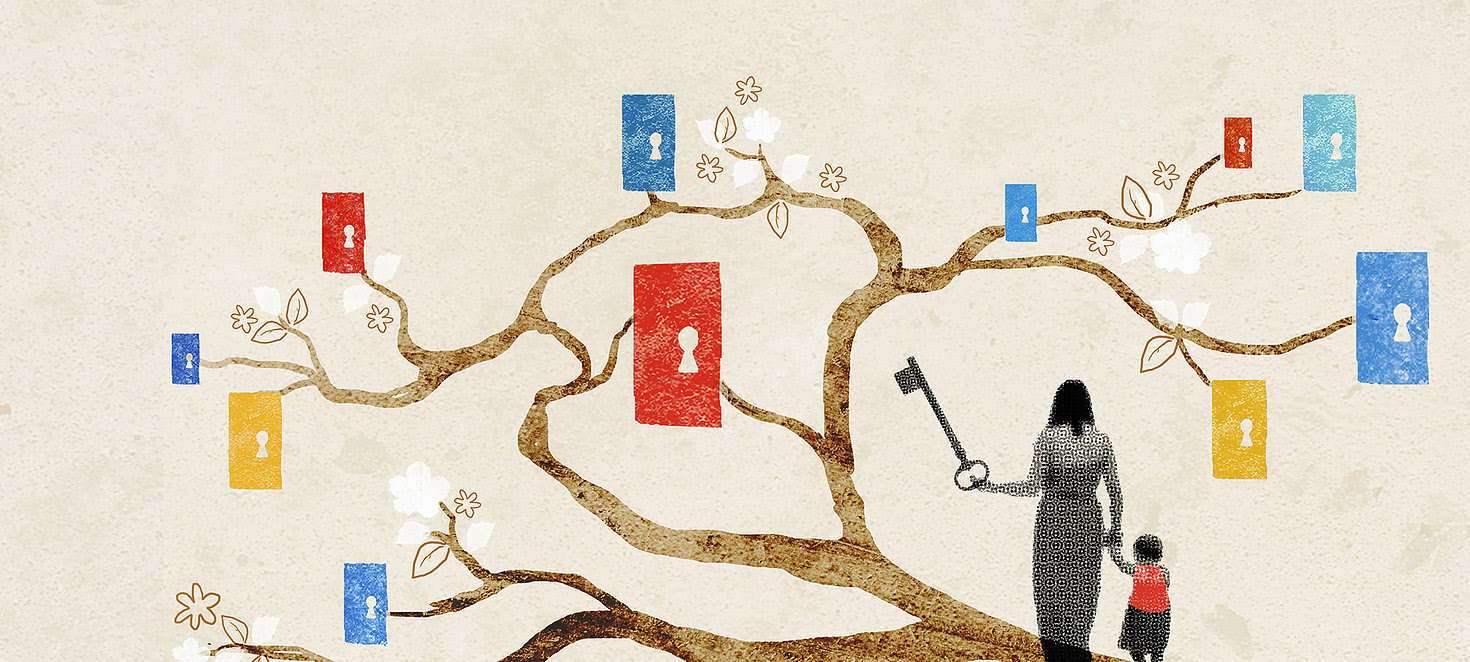Bowenian Family Systems Therapy

Bowenian Family Systems Therapy
One of the best ways to begin therapy and to gain understanding of how the emotional system operates in your family system is to put together your family genogram. This is a pictorial representation of your family tree going back several generations. This graphic representation of the personalities and interplay of generations within your family, is used to identify repetitive patterns of behavior; a psychological family tree.
A wonderful feature of this approach is that we can incorporate this into your therapy without any other family member being present. It is called “Family Systems Therapy” because we study your interaction in your total family and help you learn to interact in a more functional way which in turn will benefit the entire family system.
I use it to help you study your own patterns of behavior, and how they relate to those of your multigenerational family. It can help reveal to you new and more effective options for solving problems and for changing your response to the automatic role you are expected to play.
Family Systems Theory
The family systems theory is a theory introduced by Dr. Murray Bowen that suggests that individuals cannot be understood in isolation from one another, but rather as a part of their family, as the family is an emotional unit. Families are systems of interconnected and interdependent individuals, none of whom can be understood in isolation from the system.
The Family System
According to Bowen, a family is a system in which each member had a role to play and rules to respect. Members of the system are expected to respond to each other in a certain way according to their role, which is determined by relationship agreements. Within the boundaries of the system, patterns develop as certain family member’s behavior is caused by and causes other family member’s behaviors in predictable ways. Maintaining the same pattern of behaviors within a system may lead to balance in the family system, but also to dysfunction. For example, if a husband is depressive and cannot pull himself together, the wife may need to take up more responsibilities to pick up the slack. The change in roles may maintain the stability in the relationship, but it may also push the family towards a different equilibrium. This new equilibrium may lead to dysfunction as the wife may not be able to maintain this overachieving role over a long period of time.
There are eight interlocking concepts in Dr. Bowen’s theory:
- Triangles: The smallest stable relationship system. Triangles usually have one side in conflict and two sides in harmony, contributing to the development of clinical problems.
- Differentiation of self: The variance in individuals in their susceptibility to depend on others for acceptance and approval.
- Nuclear family emotional system: The four relationship patterns that define where problems may develop in a family.
- Marital conflict
- Dysfunction in one spouse
- Impairment of one or more children
- Emotional distance
- Family projection process: The transmission of emotional problems from a parent to a child.
- Multigenerational transmission process: The transmission of small differences in the levels of differentiation between parents and their children.
- Emotional cutoff: The act of reducing or cutting off emotional contact with family as a way managing unresolved emotional issues.
- Sibling position: The impact of sibling position on development and behavior.
- Societal emotional process: The emotional system governs behavior on a societal level, promoting both progressive and regressive periods in a society.
With my post graduate training in Bowenian Family Systems Therapy at the Menninger Foundation, I have found that by incorporating this approach we can look at your family system, your parents, and your entire family with new eyes. This new perspective enables a gentler and more understanding view of your family and past choices, thereby allowing new belief systems and possibilities to emerge in your life.
Please call me at 314-644-3339 for more information or to schedule an appointment. Together we can develop a plan to suit your needs.
In memoriam to my teacher, consultant and colleague over the years Don Shoulberg Ph.D. faculty, Menninger Foundation. My heartfelt thanks and appreciation for your guidance and teaching. I have valued our relationship immensely.
Testimonial :
Dear Peggy,
Just a short note to let you know that my brother and I are back together again–after some 3+ years–all thanks to you….I can’t thank you enough for your advice and encouragement. –TS
